Horizons
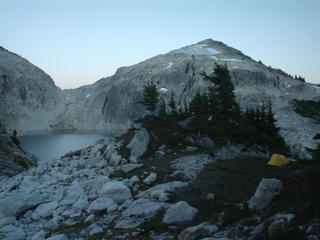
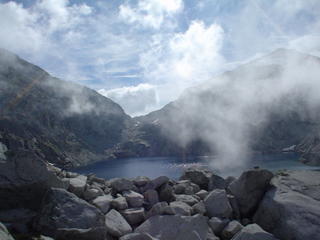
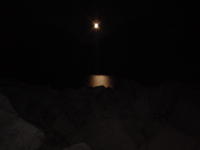
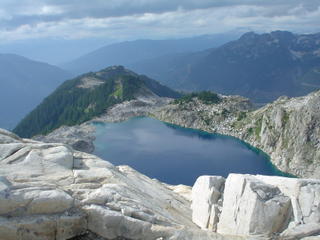
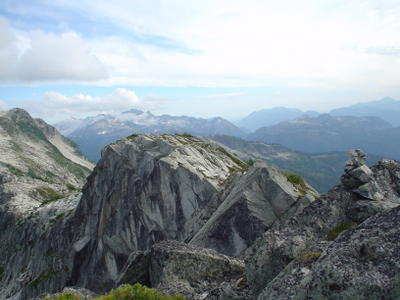
Nothing quite like it to impress upon the onlooker what a tiny mote we are upon the landscape of this earth. On top of a mountain looking down, looking out toward companion peaks marching out toward the horizon you realize the vastness of the landscape we inhabit, the minuscule presence of a human. We have, over millennia, as a disparate group of thinkers and doers impacted our landscape in ways large and small, mostly for the purpose of giving us comfort within the landscape we inhabit. Nature permits us to use her malleable resources to some extent, she lets us imagine that we are able to manipulate her vast resources for the management of our lifestyles. This is hubris, to feel that we humans control the empire upon which we have encroached, this vast natural world. Truth is we have made our habitations from the resources selected and torn from the living earth, we feed ourselves, adorn ourselves and imagine ourselves to be omnipotent.
How did I ever start on this for heaven's sake? This was not my intent. My intention was to write of the needs and cravings of our youngest child, our second-born son. He of the scientific mind whose idea of creativity is to throw a clay bowl, a teapot, a vase, and gift the finished product to a friend. He whose ability to build wonderful pieces of furniture by hand with only the hand tools used in the 19th century to produce case pieces reminiscent of the 18th and 19th centuries become instant and beloved family heirlooms. This balances his love of nature, a love which presses him to understand part of the community of nature's creatures as a biologist, an environmentalist. He is driven to continually reinstate his place in nature as few others do. His self-imposed challenge is to meet nature at her most basic. To do this he will take upon himself a state of utter aloneness in a vast arena of soil, trees, rocky mountains; his ideal landscape. His attachment to nature isn't without its recreational side, compelling him to snowshoe, ski in winter; kayak, canoe and hike in summer.
Although he takes many such trips, this one took place in late August, only an hour so from Vancouver, relatively close to Squamish and Garibaldi park. His little old Nissan truck could take him just so close on the logging road, and no closer. So, hoisting his backpack full of supplies for a three-day alpine camping stay on his short, slight but muscular frame, he hiked upward for three hours to finally reach the trailhead. From there another three hours took him to the peak where he was able to set up his tent. As he had set out at one in the afternoon he reached his destination at seven, and he was bushed. He was surprised to see deer tracks visible in a number of places. He saw and heard picas here and there. He set up his tent in the place most resembling a flat area on the side of the mountain top, not far from the alpine lake which was his destination.
Unlike alpine lakes which we had seen when we'd gone alpine camping with him, where the lakes were continually being fed by the summertime-melting glaciers nearby, this lakebed had been scoured out by receding glaciers which had covered the land thousands of years ago. In their retreat they had left glacial deposits in the shapes of huge block-like boulders and elsewhere ridges of gravel deposition at the far edge of the lake. During the night he saw the moon reflected hugely in the still of the lake. Quiet stillness reigns, unlike any quiet known in the world we normally inhabit.
In the morning he awakens to the vastness of this silent world he has placed himself into, and watches layers of mist rise from the valleys below to the peaks above. Does this seem like nature raw or an other-worldly apparition of some alien place not yet discovered by mankind? He boils water for morning tea, prepares milk and eats his breakfast of granola and an orange. Then he prepares his small backpack for a day trip to go beyond and far above the glacial lake, where he can peer down upon the lake in the distance, and his small yellow tent nestled in its rocky bed. A stand of tough, Lodgepole Pine pins down the landscape.
This is his escape and his solace, his embrace of nature and appreciation of the earth which succours us and which we in turn abuse relentlessly. Escapes are by their very nature temporary measures and in this instance a healing resource. Although this is the real world in every possible way, it is not the real world which we have fashioned and must make our way through in one way or another.
Our son will return to his home and his workplace in Vancouver. In two weeks' time he heads off to Anchorage for a week-long conference. He will make the most of his time in Alaska, going off for a few trips of discovery while there. And a mere week later he will set out on a trip to Sweden for an international meeting. When he is finished there, he will do a little tour of Greece and Italy to further expand his horizons.
Our admiration, respect and love for this young man knows no bounds. Would that he had a companion. Gender of the companion would be irrelevant to us, but perhaps not to him. We would simply feel far more easeful at heart about our beloved son were he to have a loving companion, someone with whom he could share his passions, his energy, his love for life for nature at her finest. Nature, after all, produced him.

<< Home